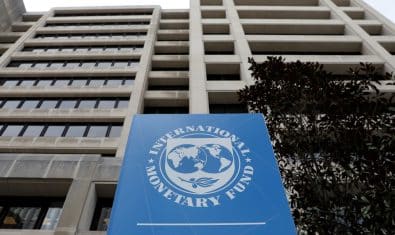The International Monetary Fund (IMF) has asked federal government and provinces for a single tax administration with uniform tax rates, instead of two or three tax authorities in every province for harmonizing the tax system.
An IMF team led by Mission Chief to Pakistan Ernesto Ramirez Rigo is in Pakistan for the first quarterly review of the 39-month fund program. The visiting IMF team discussed harmonization of taxes between the provinces and federation with the Federal Board of Revenue (FBR) underlining the importance of harmonization of taxes.
IMF Mission Chief emphasized harmonization in the tax system and creation of a single tax base as it directly impacts the ease of doing business and goes a long way in creating an enabling business environment and boosting the confidence of the investors and businessmen.
Mr. Ernesto added that Pakistan had a continental-size economy, much like the Western Europe where everybody had the same definition of the tax rate and services, and the same could be achieved in Pakistan through uniform tax rates and a single tax administration instead of two or three tax authorities in each province.
At the highest level, the decision has been made to revamp the structure of current tax agencies and to make a single, centralized tax agency for entire Pakistan.
Under the 18th amendment to the Constitution of Pakistan, the right to charge sales tax on services had been given to the provincial governments. Consequently, provincial revenue authorities were created to manage and collect sales tax in their respective provinces.
The IMF has pointed out that the responsibility for sales tax collection can be given to the federal government.
Adviser to the Prime Minister on Finance and Revenue Dr. Abdul Hafeez Shaikh has said the federal and provincial governments are in a continuous dialogue to improve coordination and create harmony on issues related to fiscal and budget management, the multiplicity of tax rates and reconciliation of input adjustment.
Visiting IMF Mission Chief Ramirez Rigo Ernesto, Punjab Finance Minister Makhdum Hashim Jawan Bakht, Khyber Pakhtunkhwa Finance Minister Taimur Saleem Khan Jhagra, Balochistan Finance Minister Zahoor Ahmed Buledi, Federal Secretary Finance Naveed Kamran Baloch, Special Secretary Finance, Government of Sindh, Baqir Abbas Naqvi and other senior officials from the Finance Division and local IMF officials were also present at the meeting.
Dr Hafeez Shaikh pointed out that harmonization of taxation and other fiscal issues within the constitutional framework is a challenging process but continuous dialogue and coordination between the centre and the provinces had resulted in better budget and expenditure management. Definitional issues related to what constituted a service and what rate of tax is applied to it in different regions is also being resolved in a spirit of mutual understanding and accommodation.
The provincial ministers from Punjab, Khyber Pakhtunkhwa and Balochistan as well as officials from Sindh also shared their experiences and briefed the IMF Mission Chief about various measures and strategies put in place in their respective provinces to achieve better fiscal and budget management.
Ramirez Rigo Ernesto said he was impressed by what he described as good financial and fiscal management and maintenance of expenditure within the budget. However, he stressed upon a full use of the development budget to achieve the development goals.
He appreciated the current level of understanding between the center and provinces and hoped such efforts would continue to build consensus and bring about greater harmony through a harmonized mechanism.



























Afsoos, IMF have to tell them this common sense approach.
They don’t have “brain” to use and utilize such singularities approach in System.